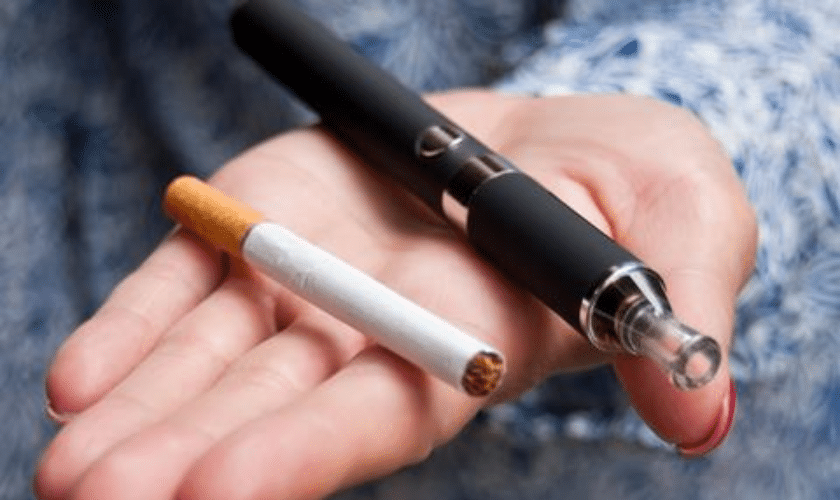In recent years, vaping has gained popularity as a supposed safer alternative to smoking traditional cigarettes. However, concerns have arisen about the potential impact of vaping on oral health. Many people wonder if vaping is indeed better for their teeth and gums compared to smoking, or if it poses its own set of risks. In this article, we’ll delve into the effects of both vaping and smoking on dental health, comparing the two to determine which may be worse for your teeth and gums.
Understanding Oral Health:
Before we explore the specific effects of vaping and smoking on oral health, let’s first establish what constitutes good oral health. Dental health refers to the condition of your teeth, gums, and mouth in general. It encompasses practices such as regular brushing and flossing, as well as routine dental check-ups and cleanings. Maintaining optimal oral health is essential for preventing issues like cavities, gum disease, and tooth loss.
Effects of Smoking on Oral Health:
Smoking cigarettes has long been known to have detrimental effects on dental health. The chemicals found in tobacco smoke can damage your teeth and gums in several ways:
Stained Teeth:
One of the most visible effects of smoking is tooth discoloration. The tar and nicotine in cigarettes can cause yellow or brown stains on the enamel, leading to a dull, unattractive smile.
Gum Disease:
Smoking weakens the immune system and reduces blood flow to the gums, making smokers more susceptible to gum disease. This condition, also known as periodontal disease, can cause symptoms such as swollen, bleeding gums, and eventually lead to tooth loss if left untreated.
Oral Cancer:
The higher chance of mouth cancer is one of smoking’s most detrimental effects. Tobacco smoke contains carcinogens that can damage the cells in your mouth, potentially leading to the development of cancerous lesions on the lips, tongue, or lining of the mouth.
Effects of Vaping on Oral Health:
While vaping is often promoted as a safer alternative to smoking, research on its long-term effects is still limited. However, there is evidence to suggest that vaping may not be as harmless to oral health as some believe:
Dry Mouth:
Vaping liquids typically contain propylene glycol and glycerin, which can contribute to dry mouth. Saliva plays a crucial role in protecting your teeth and gums by rinsing away food particles and neutralizing acids. Acidic and sugary meals and drinks can erode tooth enamel and cause cavities.
Gum Irritation:
Some vapers experience irritation or inflammation of the gums due to the chemicals and flavorings present in e-liquids. This can lead to discomfort and sensitivity in the gums, making it uncomfortable to brush and floss properly.
Oral Infections:
The act of vaping involves inhaling aerosolized particles, which can introduce bacteria and other harmful substances into the mouth. This raises the risk of oral infections, including thrush (a fungal infection of the mouth) and bacterial infections of the gums.
When comparing the effects of vaping and smoking on oral health, it’s clear that both habits can have negative consequences. While smoking is associated with a higher risk of oral cancer and severe gum disease, vaping poses its own set of challenges, including dry mouth, gum irritation, and oral infections.
Ultimately, the best way to protect your oral health is to avoid both smoking and vaping altogether. If you currently smoke or vape, quitting is the most effective step you can take to improve the health of your teeth and gums. Additionally, maintaining good oral hygiene habits, such as brushing twice a day, flossing daily, and visiting your dentist in Austin regularly for check-ups and cleanings, is essential for keeping your smile bright and healthy.
How To Protect Your Oral Health From Vaping Or Smoking
Quit Smoking or Vaping:
The most effective way to protect your dental health from the harmful effects of smoking or vaping is to quit these habits altogether. Seek support from friends, family, or healthcare professionals to help you successfully quit.
Practice Good Oral Hygiene:
Brush your teeth at least twice a day with fluoride toothpaste and floss daily to remove plaque and bacteria from your mouth. This helps prevent cavities, gum disease, and other oral health issues.
Visit Your Dentist Regularly:
Schedule routine dental check-ups and cleanings with your dentist in Austin. These appointments allow your dentist to assess your oral health, detect any problems early, and provide professional cleanings to remove plaque and tartar buildup.
Limit Sugary and Acidic Foods:
Sugary and acidic foods and beverages can contribute to tooth decay and enamel erosion. Limit your consumption of sugary snacks, sodas, and fruit juices, and choose water or unsweetened beverages instead.
Drink Plenty of Water:
To keep your teeth healthy, you must drink enough water. Drink plenty of water throughout the day to help rinse away food particles and bacteria from your mouth, and to keep your saliva production at a healthy level.
Use Nicotine Replacement Therapies:
If you’re struggling to quit smoking, consider using nicotine replacement therapies such as nicotine gum, patches, or lozenges. These products can help reduce cravings and withdrawal symptoms as you work towards quitting.
Avoid Tobacco Products: In addition to cigarettes, avoid using other tobacco products such as cigars, pipes, and smokeless tobacco. These products can also have harmful effects on your oral health, increasing the risk of oral cancer, gum disease, and other conditions.
Be Mindful of Your Dental Health: Pay attention to any changes or abnormalities in your mouth, such as bleeding gums, persistent bad breath, or unusual sores or lesions. If you notice anything concerning, contact your dentist in Austin for evaluation and treatment.
